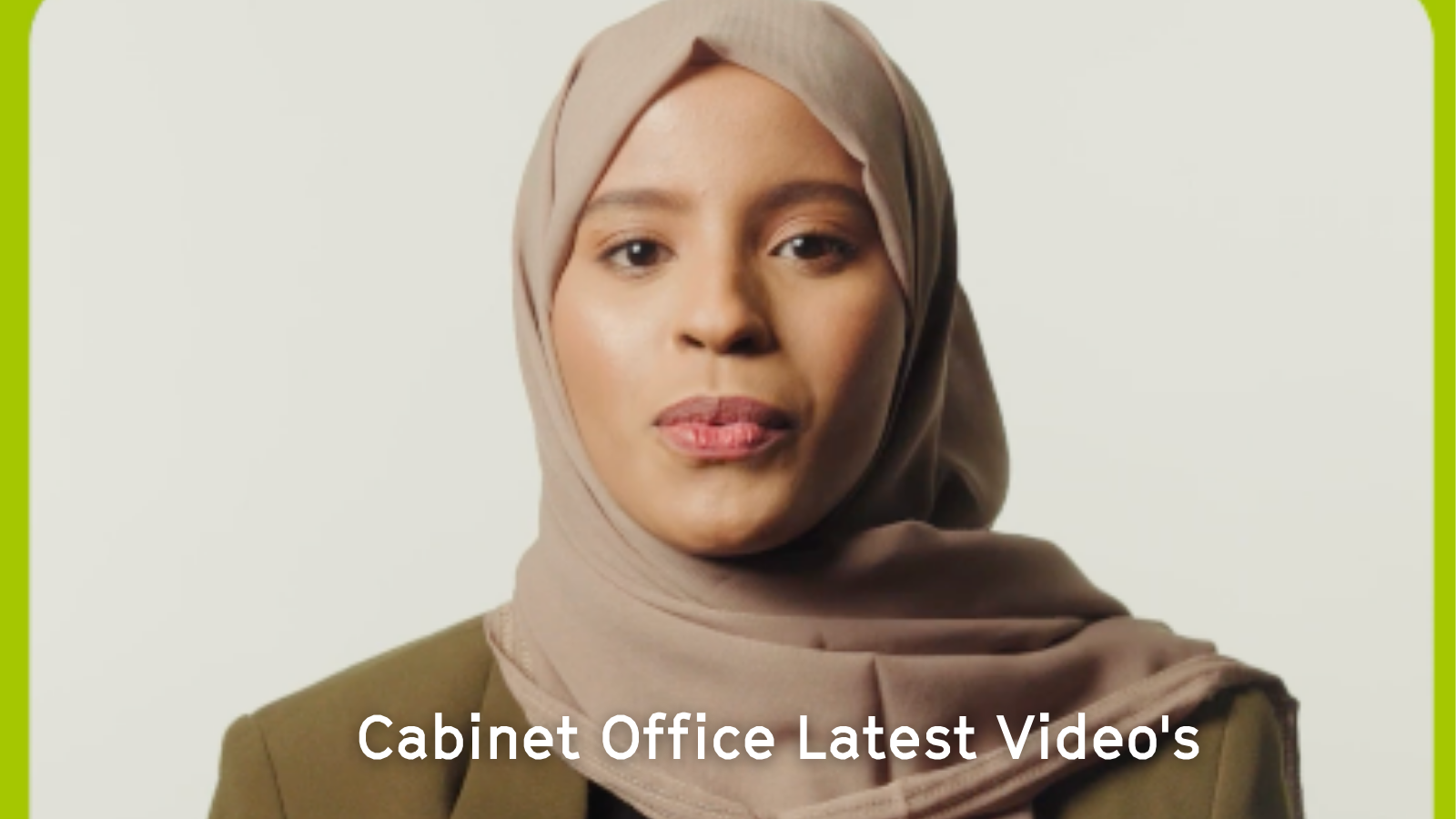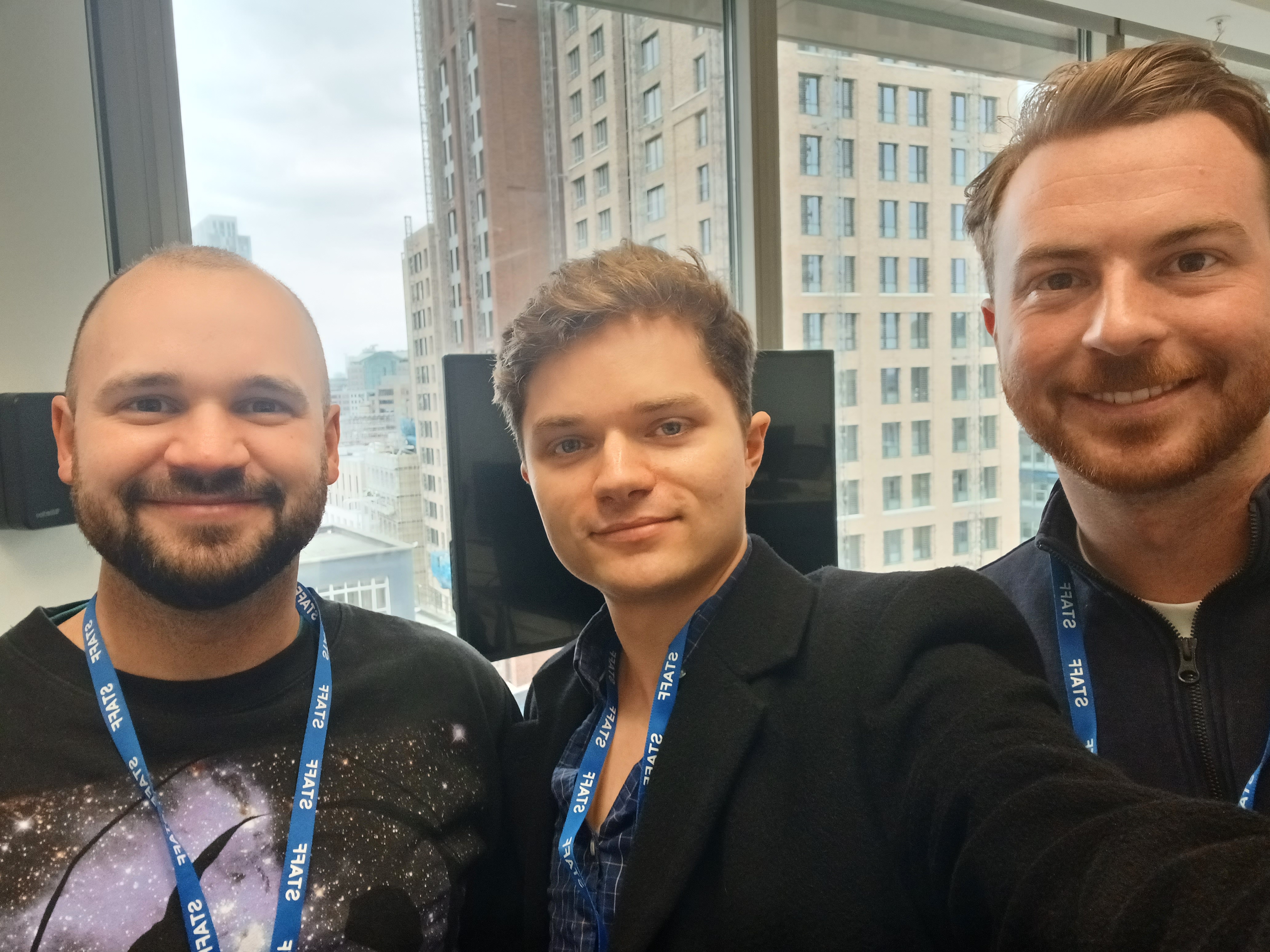Senior Data Architect
Government Digital Services -
The Government Digital Service (GDS) is the digital centre of government. We are responsible for setting, leading and delivering the vision for a modern digital government.
Our priorities are to drive a modern digital government, by:
- joining up public sector services
- harnessing the power of AI for the public good
- strengthening and extending our digital and data public infrastructure
- elevating leadership and investing in talent
- funding for outcomes and procuring for growth and innovation
- committing to transparency and driving accountability
We are home to the Incubator for Artificial Intelligence (I.AI), the world-leading GOV.UK and at the forefront of coordinating the UK’s geospatial strategy and activity. We lead the Government Digital and Data function and champion the work of digital teams across government.
We’re part of the Department for Science, Innovation and Technology (DSIT) and employ more than 1,000 people all over the UK, with hubs in Manchester, London and Bristol.
The Government Digital Service is where talent translates into impact. From your first day, you’ll be working with some of the world’s most highly-skilled digital professionals, all contributing their knowledge to make change on a national scale.
Join us for rewarding work that makes a difference across the UK. You'll solve some of the nation’s highest-priority digital challenges, helping millions of people access services they need.
Job description
You will be joining GDS and the Office of the Government Chief Data Officer at an exciting time as we deliver the next critical programme of work of the Data Standards Authority.
Our team has some big ambitions. We want to improve services for end users and improve how new policies are developed through the effective use and reuse of data. A key part of that will be to establish common data standards that enable improved data quality, greater interoperability so systems can exchange and integrate data seamlessly, and improve efficiency by making processes more productive, less expensive and more timely. We need great people to make that happen.
You’ll work on two interrelated data standards projects. The first project relates to an ongoing development and implementation of a logical model to identify and support vulnerable people in different scenarios such as economic hardship or flooding. The second project will be looking at identifying and building consensus on data standards on ‘data primitives’ and key attributes of entities such as a person or an organisation. Both projects will require working with experts from the policy and data professions. After consulting across government, you’ll help deliver simple, accessible and easy to use artefacts to help standardise data so as to improve interoperability and facilitate data sharing, findability and analysis.
You’ll push forward the data vision to wider government, and be able to communicate this to all levels of responsibility, including chief data officers and chief executive officers in government
You’ll work on multiple projects at the same time while working amongst an excellent peer group. You will have the ability to work independently without direct supervision, while prioritising your workload and having confidence in your decisions.
As a Senior Data Architect you will:
- actively progress and champion the aims of Office of the Government Chief Data Officer and the DSA by helping develop and set the right standards for government
- work as part of a multidisciplinary team to build consensus on standards and develop user-friendly artefacts
- form a close working partnership with members of the Domain Expert Group on Core Attributes of a Person and the Government Data Architecture Community to deliver results
- engage and negotiate with stakeholders, suppliers, senior managers and non technical audiences
- attend both highly technical meetings as well as business focused meetings and vary your communication style in line
- be involved in the wider data community, identifying good practices to adopt and sharing your experiences, e.g. through blog posts, tech talks at conferences
- encourage a positive data culture, applying agile methods, open standards and quality assurance
You will be expected to work flexibly and collaboratively on a range of projects where your expertise and skills are needed and will support a culture of agile working across your team.
Person specification
We’re interested in people who:
- listen to and interpret the needs of technical and non-technical stakeholders, and manage their expectations, particularly when defining data strategies and principles
- can shape communication for both technical and non-technical audiences to gain understanding of their business challenges
- have experience designing scalable user-focused services that deliver measurable transformation
- have the ability to produce relevant data models across multiple subject areas
- have experience of working with subject matter experts across the organisation to introduce data standards best practice
- understand how to prioritise work in a fast, customer centric, environment and drive through an agenda (strategic and tactical)
- have the ability to see opportunities for improvement and an interest in forming government data best practices, standards and policies
- are able to read, understand and critique (in order to improve) data design documentation
- have an understanding of agile environments, continual delivery techniques and devops cultures and how this compares with Domain Driven Design
Benefits
There are many benefits of working at GDS, including:
- flexible hybrid working with flexi-time and the option to work part-time or condensed hours
- a Civil Service Pension with an average employer contribution of 28.97%
- 25 days of annual leave, increasing by a day each year up to a maximum of 30 days
- an extra day off for the King’s birthday
- an in-year bonus scheme to recognise high performance
- career progression and coaching, including a training budget for personal development
- paid volunteering leave
- a focus on wellbeing with access to an employee assistance programme
- job satisfaction from making government services easier to use and more inclusive for people across the UK
- advances on pay, including for travel season tickets
- death in service benefits
- cycle to work scheme and facilities
- access to an employee discounts scheme
- 10 learning days per year
- volunteering opportunities (5 special leave days per year)
- access to a suite of learning activities through Civil Service learning
Any move to Government Digital Service from another employer will mean you can no longer access childcare vouchers. This includes moves between government departments. You may however be eligible for other government schemes, including Tax Free Childcare. Determine your eligibility at https://www.childcarechoices.gov.uk
Office attendance
The Department operates a discretionary hybrid working policy, which provides for a combination of working hours from your place of work and from your home in the UK. The current expectation for staff is to attend the office or non-home based location for 40-60% of the time over the accounting period.
DSIT does not normally offer full home working (i.e. working at home); but we do offer a variety of flexible working options (including occasionally working from home).
Things you need to know
Selection process details
The standard selection process for roles at GDS consists of:
- a simple application screening process - We only ask for a CV and for you to answer 2 application questions.
- a 60 minute video interview. As part of the interview process there will be a presentation task to prepare. Details around the presentation task will be shared with shortlisted candidates.
Depending on how many applications we get, there might also be an extra stage before the video interview, for example a phone interview or a technical exercise.
Artificial Intelligence can be a useful tool to support your application, however, all examples and statements provided must be truthful, factually accurate and taken directly from your own experience. Where plagiarism has been identified (presenting the ideas and experiences of others, or generated by artificial intelligence, as your own) applications may be withdrawn and internal candidates may be subject to disciplinary action. Please see our candidate guidance for more information on appropriate and inappropriate use.
In the event we receive a high volume of applications, we will conduct the initial sift against the lead criteria which is:
- Describe a time when you led work with multiple stakeholders to develop or implement data standards across one or more organisations. Use “I” rather than “we” language, and you should use the STAR format. This question will be assessed based on the Civil Service behaviour, Making Effective Decisions.
In the Civil Service, we use Success Profiles to evaluate your skills and ability. This gives us the best possible chance of finding the right person for the job, increases performance and improves diversity and inclusivity. We’ll be assessing your technical abilities, skills, experience and behaviours that are relevant to this role.
For this role we’ll be assessing you against the following Civil Service Behaviours:
- making effective decisions
- working together
- leadership
- communicating and influencing
- delivering at pace
We’ll also be assessing your experience and specialist technical skills against the following skills defined in the Government Digital and Data Capability Framework for the Senior Data Architect role:
- communicating between the technical and non-technical
- communicating data
- data analysis and synthesis
- data governance (data architect)
- data innovation
- data modelling
- data standards
- metadata management
- problem management
Recruitment Timeline
Sift completion: Friday 17th October 2025
Panel interviews: starting Friday 24th October 2025
Candidates that do not pass the interview but have demonstrated an acceptable standard may be considered for similar roles at a lower grade.
A reserve list will be held for a period of 12 months, from which further appointments can be made.
The Civil Service is committed to attract, retain and invest in talent wherever it is found. To learn more please see the Civil Service People Plan and the Civil Service D&I Strategy.
Sponsorship
DSIT cannot offer Visa sponsorship to candidates through this campaign. DSIT holds a Visa sponsorship licence but this can only be used for certain roles and this campaign does not qualify.
Feedback will only be provided if you attend an interview or assessment.






